Filter by
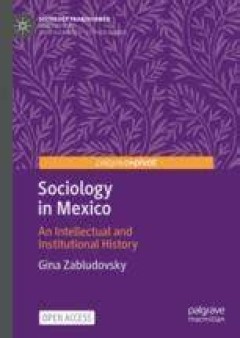
Sociology in Mexico
This open access book presents a condensed history of Sociology in Mexico from its origins, through to the middle of the 19th century and up to the present day. The book analyses the interaction between sociology and the main economic, political and social change in the country, including the 1910 Mexican Revolution, the main social movements, the role of the intellectual exiles from Spain and …
- Edition
- 1
- ISBN/ISSN
- 978-3-031-42089-4
- Collation
- -
- Series Title
- Sociology Transformed
- Call Number
- XIV, 90
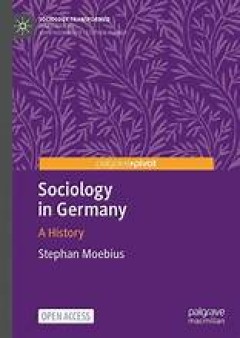
Sociology in Germany
This open access book traces the development of sociology in Germany from the late 19th century to the present day, providing a concise overview of the main actors, institutional processes, theories, methods, topics and controversies. Throughout the book, the author relates the discipline’s history to its historical, economic, political and cultural contexts. The book begins with sociology in…
- Edition
- 1
- ISBN/ISSN
- 978-3-030-71866-4
- Collation
- -
- Series Title
- Sociology Transformed
- Call Number
- XI, 222
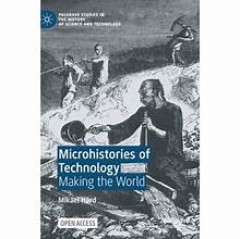
Microhistories of Technology
In this open access book, Mikael Hård tells a story of how people around the world challenged the production techniques and products brought by globalization. Retaining their autonomy and freedom, creative individuals selectively adopted or rejected modern gadgets, tools, and machines. In standard historical narratives, globalization is portrayed as an unstoppable force that flattens all obsta…
- Edition
- 1
- ISBN/ISSN
- 978-3-031-22813-1
- Collation
- -
- Series Title
- Palgrave Studies in the History of Science and Technology
- Call Number
- XX, 290
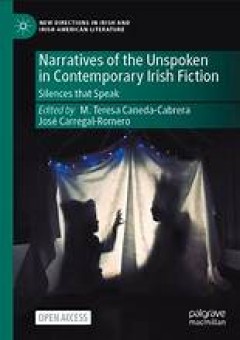
Narratives of the Unspoken in Contemporary Irish Fiction
This Open access book is a collection of essays and offers an in-depth analysis of silence as an aesthetic practice and a textual strategy which paradoxically speaks of the unspoken nature of many inconvenient hidden truths of Irish society in the work of contemporary fiction writers. The study acknowledges Ireland’s history of damaging silences and considers its legacies, but it also undersc…
- Edition
- 1
- ISBN/ISSN
- 978-3-031-30455-2
- Collation
- -
- Series Title
- New Directions in Irish and Irish American Literature
- Call Number
- XIX, 246
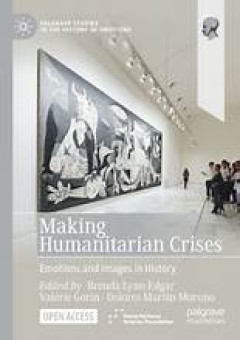
Making Humanitarian Crises
This open access collection of essays explores the emotional agency of images in the construction of ‘humanitarian crises’ from the nineteenth century to the present. Using the prism of the histories of emotions and the senses, the chapters examine the pivotal role images have in shaping cultural, social and political reactions to the suffering of others and to the establishment of the inte…
- Edition
- 1
- ISBN/ISSN
- 978-3-031-00824-5
- Collation
- -
- Series Title
- Palgrave Studies in the History of Emotions
- Call Number
- XII, 186
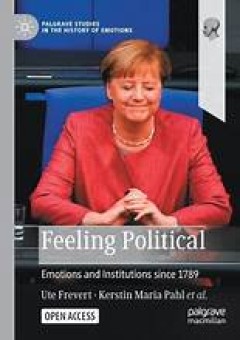
Feeling Political
Historicizing both emotions and politics, this open access book argues that the historical work of emotion is most clearly understood in terms of the dynamics of institutionalization. This is shown in twelve case studies that focus on decisive moments in European and US history from 1800 until today. Each case study clarifies how emotions were central to people’s political engagement and its …
- Edition
- 1
- ISBN/ISSN
- 978-3-030-89858-8
- Collation
- -
- Series Title
- Palgrave Studies in the History of Emotions
- Call Number
- XIX, 390
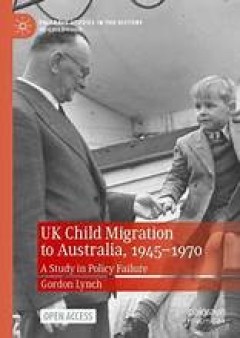
UK Child Migration to Australia, 1945-1970
This open access book offers an unprecedented analysis of child welfare schemes, situating them in the wider context of post-war policy debates about the care of children. Between 1945 and 1970, an estimated 3,500 children were sent from Britain to Australia, unaccompanied by their parents, through child migration schemes funded by the Australian and British Governments and delivered by churche…
- Edition
- 1
- ISBN/ISSN
- 978-3-030-69728-0
- Collation
- -
- Series Title
- Palgrave Studies in the History of Childhood
- Call Number
- XIII, 338
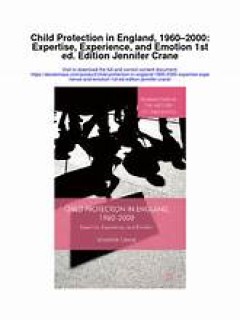
Child Protection in England, 1960–2000
This book is open access under a CC BY 4.0 license. This open access book explores how children, parents, and survivors reshaped the politics of child protection in late twentieth-century England. Activism by these groups, often manifested in small voluntary organisations, drew upon and constructed an expertise grounded in experience and emotion that supported, challenged, and subverted…
- Edition
- 1
- ISBN/ISSN
- 978-3-319-94718-1
- Collation
- -
- Series Title
- Palgrave Studies in the History of Childhood
- Call Number
- IX, 215
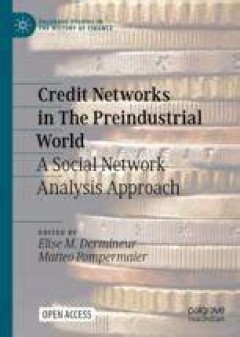
Credit Networks in The Preindustrial World
This open access book examines the formation and sustainability of private credit networks in past societies, gathering a global range of case studies from Europe and the Americas. The book represents a fi rst attempt to coordinate the work of different scholars working on credit networks and aims to explore the possibilities offered by social network analysis for the study of past fi nancial m…
- Edition
- 1
- ISBN/ISSN
- 978-3-031-67117-3
- Collation
- -
- Series Title
- Palgrave Studies in the History of Finance
- Call Number
- XIV, 403
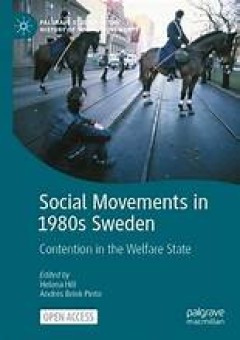
Social Movements in 1980s Sweden
This open access book discusses the emergence and development, and in some cases also the disappearance, of social movements and activism in Sweden during the 1980s. Its aim is to nuance and problematize the image of the 1980s as unilaterally dominated by right-wing politics and neoliberalism, as well as the idea of a conflict-free Scandinavian model. The 1980s have often been described as a pe…
- Edition
- 1
- ISBN/ISSN
- 978-3-031-27370-4
- Collation
- -
- Series Title
- Palgrave Studies in the History of Social Movements
- Call Number
- XXIII, 249
 Computer Science, Information & General Works
Computer Science, Information & General Works  Philosophy & Psychology
Philosophy & Psychology  Religion
Religion  Social Sciences
Social Sciences  Language
Language  Pure Science
Pure Science  Applied Sciences
Applied Sciences  Art & Recreation
Art & Recreation  Literature
Literature  History & Geography
History & Geography